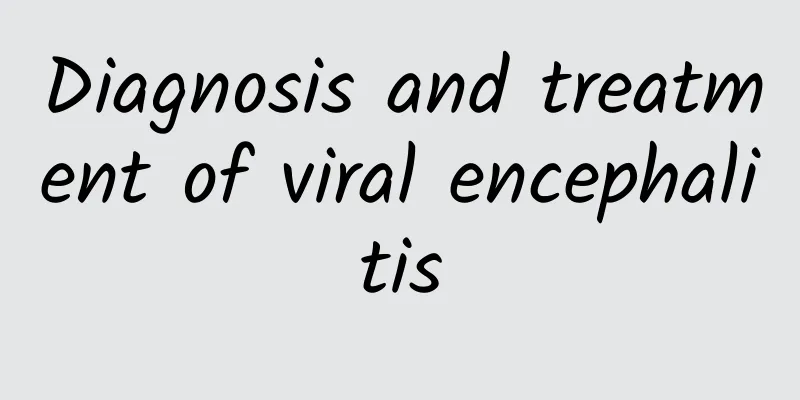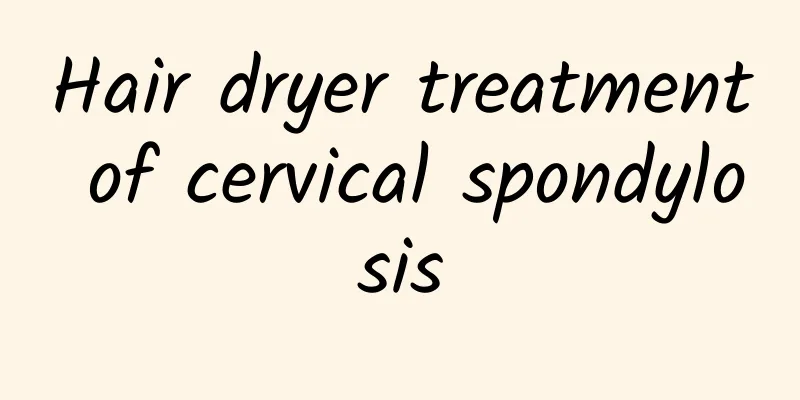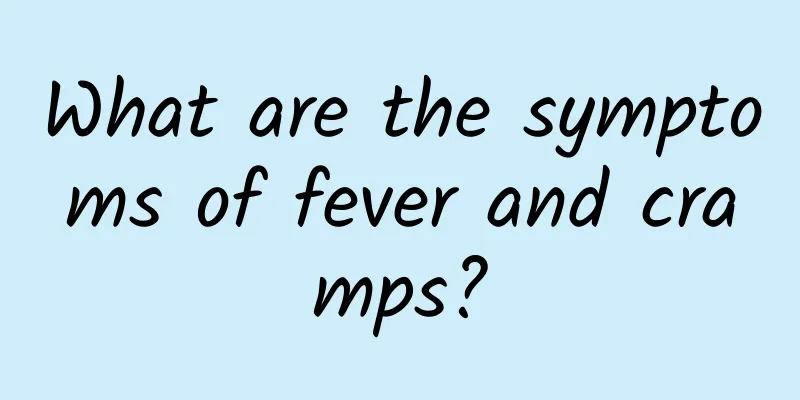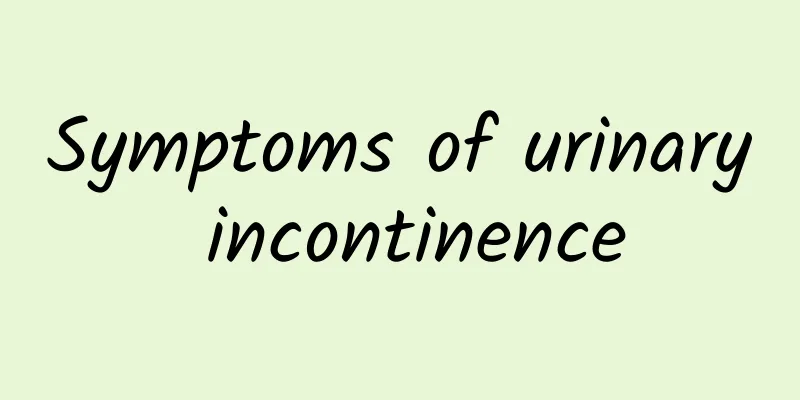Diagnosis and treatment of viral encephalitis

|
Viral encephalitis refers to primary encephalitis caused by direct virus invasion of the brain parenchyma. This disease occurs all year round, so what are the diagnosis and treatment methods for viral encephalitis? Diagnostic tests 1. During the neurological examination, pay attention to the presence of visual impairment, optic disc edema, ocular muscle paralysis, hearing loss, dysphagia, limb paralysis, pathological reflexes, changes in muscle tone, ataxia, involuntary movements (tremor, choreiform movements, athetosis), sensory impairment, urinary and fecal retention, incontinence, and meningeal irritation signs. 2. Auxiliary examination (1) General examination: routine blood and urine tests, erythrocyte sedimentation rate, cerebrospinal fluid pressure, routine tests, biochemistry, cytology, immunology Globulin (IgG, IgA, IgM) determination and blood mixed rosette rate determination. (2) Electrophysiological examination: electroencephalogram (EEG), brain evoked (visual, auditory, somatosensory) potentials. (3) Imaging examination: brain CT or MRI examination. (4) Immunological examination of viral infection: Detect herpes simplex virus in blood and cerebrospinal fluid using ELISA or PCR method. Duplicate serum is taken for complement fixation test, hemagglutination inhibition test, adenovirus immunofluorescence test, poliomyelitis neutralization test and simple and rapid diagnosis of epidemic encephalitis B, adenovirus, measles virus, poliomyelitis, influenza virus, etc., as well as influenza virus infection. (5) Perform brain biopsy (immunofluorescence examination, virus isolation, and pathological histological examination). Forest encephalitis mouse brain vaccine can be injected subcutaneously and should be started 1-11/2 months before the epidemic season to reduce the incidence or alleviate symptoms. Treatment options General treatment involves bed rest, keeping the airway open, oxygen and sputum suction when necessary, keeping warm, and supplying a certain amount of water, nutrition, and electrolytes. Adrenal cortical hormones, usually dexamethasone, 0.25-0.5 mg/(kgd), intravenous drip, 7 to 14 days, can relieve symptoms and reduce intracranial pressure. It is contraindicated in patients with herpes virus encephalitis. 1. Medical history should include any fever, headache, vomiting, impaired consciousness, various types of epileptic seizures, or paralysis. Pay attention to whether there are mental disorders, intellectual impairment, and disorders of orientation, memory, understanding and judgment. The severity of onset, duration of the disease, and whether there is relief. Whether there was cough, abdominal pain or diarrhea before the illness. 2. Psychiatric examination: Pay attention to the presence of excitement, mutism, disobedience, stupor, emotional instability, illusion, hallucination, speech and thinking disorders, dementia, and the state of consciousness. Symptomatic treatment ① Glucocorticoids: 200mg~400mg of hydrocortisone or 10mg~20mg of dexamethasone, added to 500ml of 5% glucose solution and dripped intravenously. One course of treatment is 5~7 days. ② Dehydration and diuresis: 20% mannitol 250ml intravenous drip, 2-4/d, the course of treatment depends on the condition; or glycerol fructose 500ml intravenous drip, 2/d. ③ Cooling: mainly physical cooling. ④Anti-epileptic treatment. ⑤ Antipsychotics: For psychomotor excitement, chlorpromazine, perphenazine or telden can be given, and the dosage should be individualized. ⑥If necessary, decompression surgery. Antiviral therapy ① Herpes simplex virus encephalitis must be treated early with acyclovir, the dosage is 10 mg/kg each time, dissolved in 100 ml of solution and dripped in 1 to 2 hours, once every 8 hours, 10 days as a course of treatment. ② Adenosine arabinoside (Ara-A) 5-20 mg/kg, intravenous drip, 1/d, 5-10 days as a course of treatment, early application. It is suitable for herpes zoster encephalitis, and its side effects include bone marrow suppression, anorexia, vomiting, stomatitis, hair loss and diarrhea. ③Interferon: 5ml intramuscular injection, 1/d. The course of treatment depends on the condition and should be used in the early stage. ④ Transfer factor: 2 ml subcutaneous injection (in the lymph nodes near the upper arm or groin), 1/d, 5 times as a course of treatment. Traditional Chinese medicine treatment is based on the differentiation of Wei, Qi, Ying and Blood, and uses Yinqiao Powder, Baihu Decoction, Sanjia Fumai Decoction, etc. |
<<: What are the normal breathing, body temperature and pulse rate for an adult?
>>: Causes and clinical manifestations of Hashimoto's encephalopathy
Recommend
How to treat thoracic vertebrae fractures
The thoracic vertebra is a very important part of...
Do it once at night to remove toxins from your face
Now more and more people want to lose weight and ...
How to eat Chinese yam in traditional Chinese medicine, you can choose different prescriptions according to your symptoms
Speaking of traditional Chinese medicine, many pe...
Can drinking water while sweating boost your metabolism?
Sweat steaming is actually a method that many peo...
What to do if you have stomach acid, bloating, and nausea? You need to adjust your diet and lifestyle
Nowadays, most of us have some stomach problems t...
How to relieve cervical pain? How to relieve cervical pain
As the economic level continues to improve, many ...
What diseases can lung CT detect?
When we do a physical examination, we are sometim...
Is it good to use essential oils for body care?
Essential oil is a relatively common beauty and s...
What causes neurogenic edema?
I believe many people are familiar with neurogenic...
What medicine should I take for cold and joint pain
When you have a cold, you often have a fever, and...
Can sleeping with a wine bottle as a pillow cure cervical spondylosis?
Sleeping with a beer bottle can achieve a certain...
Can I eat ginger during early pregnancy?
Ginger is a common seasoning. It is not only foun...
How to use moxibustion to remove coldness from the knees?
Moxibustion is a common treatment method in Tradi...
The baby was born with a lump in his ear
Many newborns have a small lump on their ears aft...
What does urticaria look like?
Urticaria is a relatively common disease. The gen...









